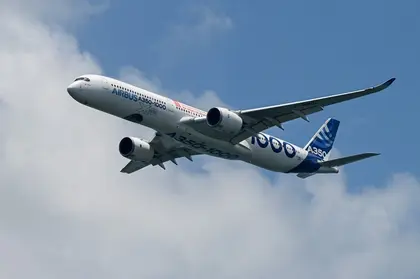The Canadian government has permitted Airbus to utilize Russian titanium in its Canadian manufacturing, despite Ottawa’s sanctions against the Russian titanium manufacturer VSMPO-Avisma, Reuters reported.
“Airbus is aware of the Canadian government imposing sanctions on VSMPO and has obtained the necessary authorization to secure Airbus operations in compliance with the applicable sanctions,” Airbus Canada said in response to a Reuters query.
JOIN US ON TELEGRAM
Follow our coverage of the war on the @Kyivpost_official.
Airbus did not specify the nature or duration of these permits. Canadian authorities have not commented on the situation.
In December 2022, Airbus Corporation announced plans to phase out titanium supplies from Russia within a few months. Reuters sources indicated that the company has increased purchases of titanium from the United States and Japan.
However, they also noted that the certification process for new suppliers could take years due to aerospace standards.
In February 2024, Canada imposed sanctions on VSMPO-Avisma Corporation.
In the summer of 2022, European Union authorities had planned to introduce similar restrictions, but European companies, including Airbus, opposed them.
The development adds to concerns that Western sanctions against Russia are proving ineffective.
In another example of sanctions impotence, a French company based in Chateauroux is continuing to supply avionics and other on-board electronics for Russian aircraft used by senior military and political figures.

UK Minister to Accuse Russia of Aggression in ‘Cyber Realm’
According to an investigation by the French newspaper Le Parisien, PGA, a subsidiary of the American group Astronics, is providing advanced systems that control various aspects of flight, from cabin lighting to communication and data transmission systems, for aircraft used by top Russian officials.
The equipment supplied by PGA allows for secure and reliable communication for mobile phones used by Russian officials, including President Vladimir Putin, the head of the Russian Security Council Dmitry Dmitry Medvedev, Defense Minister Sergei Shoigu, presidential spokesman Dmitry Peskov, and other high-ranking officials.
Business with Russian customers not only persisted despite sanctions but also expanded, with the company reportedly earning between €4 and €5 million ($4.3 and $5.3 million) – which corresponds to equipping seven aircraft.
You can also highlight the text and press Ctrl + Enter






